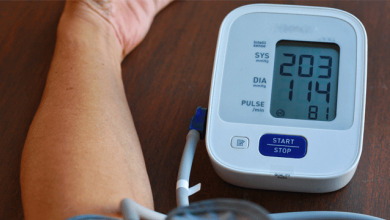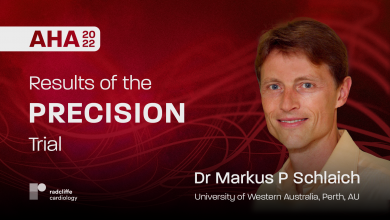Search results
Home Blood Pressure Monitoring
Author(s):
Jacob George
,
Thomas M MacDonald
Added:
3 years ago
Article
Author(s):
Francesco P Cappuccio
Added:
3 years ago
Hypertension is a major independent risk factor for cardiovascular (CV) diseases, including cardiac death, coronary heart disease, heart failure, stroke and chronic kidney disease. Therefore, early diagnosis, prevention and optimal management of hypertension is essential.1 Hypertension poses a growing public health burden: the number of adults with elevated blood pressure (BP) increased from 594…
View more
Foreword
Author(s):
Juan Carlos Kaski
Added:
3 years ago
Article
Author(s):
Thomas Kahan
Added:
3 years ago
High blood pressure is the major risk factor for disease and premature death worldwide.1 The associations between blood pressure and fatal coronary artery disease and fatal stroke have been well demonstrated.2 Also, associations between blood pressure and morbidity and mortality on specific cardiovascular disease conditions in different age groups, and results concerning the lifetime risk for…
View more
Author(s):
Elías Martínez Rey-Rañal
,
Alberto Cordero
Added:
1 year ago
Pre-eclampsia and CVD
Author(s):
Veronica Giorgione
,
Matthew Cauldwell
,
Basky Thilaganathan
Added:
10 months ago
Article
Author(s):
John Anderson
,
Nicola Donnelly
Added:
3 years ago
A range of treatments have been developed for the management of cardiac arrhythmias. These include antiarrhythmic drugs, artificial pacemakers, implanted cardiac defibrillators and ablation of damaged or malfunctioning cardiac tissue. However, to allow a physician to choose the most suitable course of treatment for a patient, it is important that the correct diagnosis be made in an appropriate…
View more
Author(s):
Bosede A Afolabi
,
Fred M Kusumoto
Added:
3 years ago
Since the first implantable pacemaker was introduced in 1958, electronic devices designed to treat cardiac problems have experienced technological leaps. A rapidly expanding number of patients depend on this technology.1 Cardiovascular implantable electronic devices (CIEDs) now include implantable cardioverter defibrillators (ICDs), pacemakers (PMs), cardiac resynchronisation therapy (CRT)…
View more
Author(s):
Steven Podd
,
Jacqueline Hunt
,
Neil Sulke
Added:
3 years ago
Vasovagal syncope (VVS) is most common cause of syncope,1 with 37 % of the population suffering at least one attack during their life time.2 Head up tilt-table testing (HUTT) was first evaluated and used for the diagnosis of VVS in 1986.3–4 Prior to this, diagnosis relied purely on the clinical history and exclusion of other conditions. With almost 40 % of patients with VVS experiencing no…
View more
Author(s):
Markus P Schlaich
Added:
1 year ago
AHA 2022 — Dr Markus P Schlaich (University of Western Australia, AU) joins us to discuss the key findings from the PRECISION trial (NCT03541174).This randomized, phase 3 study assessed the sustained blood pressure lowering effect of a dual endothelin receptor antagonist, aprocitentan (Idorsia Pharmaceuticals Ltd.) in resistant hypertension.
Presented first at AHA 22, the trial showed that…
View more















